We can't see it, it's undetectable to human senses but it's shortening thousands of lives each year. According to Global Action Plan (the environmental charity behind Clean Air Day), air pollution claims between 29,000 and 43,000 lives in the UK annually. The World Health Organization and UK Government identify it as one of our greatest environmental health threats.
Meet the inventive minds at Nellie Technologies. Nominated for the Earthshot Prize (the prestigious international award that recognises organisations making a positive environmental impact), Nellie is fighting air pollution with protected intellectual property (IP) that's actively pulling carbon dioxide from our atmosphere.
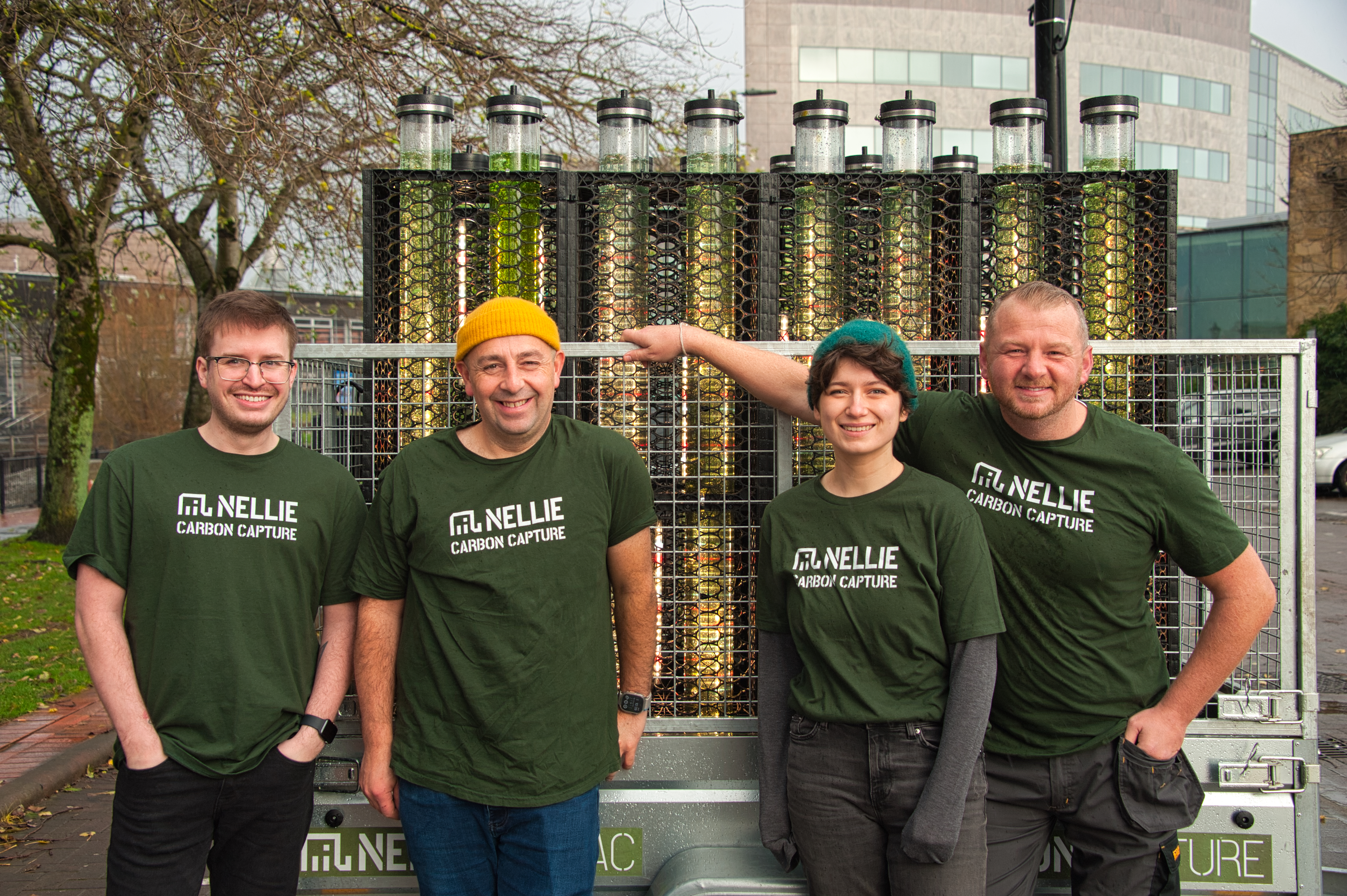
Image credit: Nellie Technologies
Their bioengineered carbon removal system transforms harmful emissions into valuable biochar, a special charcoal-like substance that adds structure and nutrient content to soil, acting as a bio-fertiliser. But most importantly, it sequesters (isolates) the carbon that the process has taken out of the atmosphere.
We caught up with Nellie Technologies Founder and Chief Executive, Stephen Milburn, to hear about the team’s carbon removal technology and how IP protection has played a part in their business.
"I never thought I'd be an inventor!"
A physics graduate from Bristol University, Stephen’s journey to clean air tech began, unexpectedly, with a bold attempt to bring authentic Japanese cuisine to Bristol.
"I opened a sushi bar because I lived in Japan for a while and thought I could make the world's best sushi!" Stephen’s inspirational “anything is possible” approach was a recurring thread right through his story.

When delivery trucks couldn't navigate the narrow alley to his shop, Stephen bought a van to fetch supplies from London himself. That van led to more vehicles, and soon his business pivoted unexpectedly from sushi to a thriving haulage company with a fleet of trucks.
"We were spending a fortune on fuel, and I thought there must be a way to make biofuels, so I thought, let's build a photobioreactor in order to create biofuels!
With biofuel production from micro algae it is scientifically incredibly difficult to get the lipids and the fuel rich part of that micro algae out of the system. So I ended up with a system that could grow microalgae quite quickly from a bioreactor, but it was not economically feasible for the purpose I wanted to use it for.”
After selling his haulage business, Stephen started a software company. During a software project for a Swedish industrial client struggling with emissions management, the lightbulb moment arrived: "I realised we could capture carbon using microalgae bioreactors."
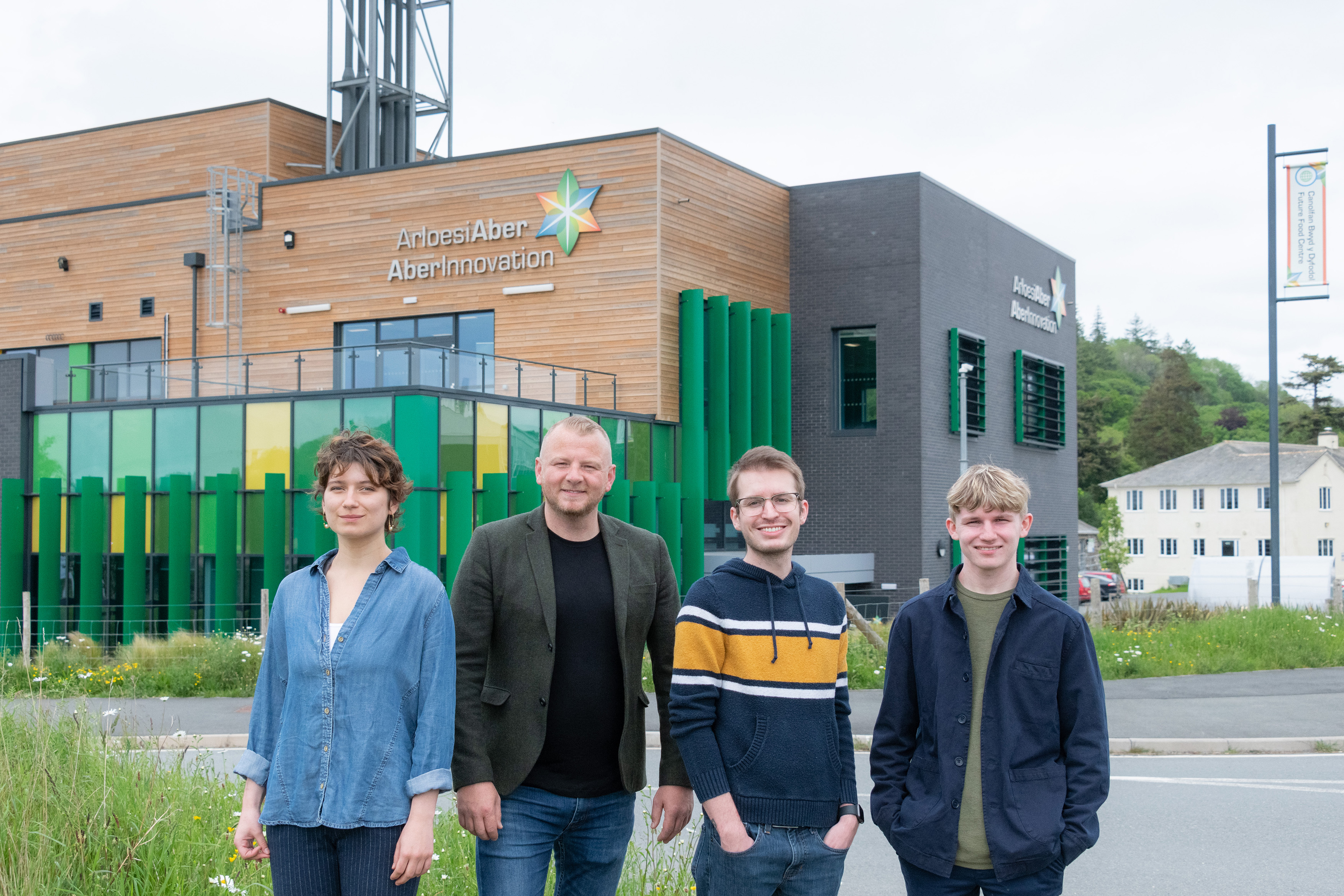
Image credit: Nellie Technologies.
As microalgae grows, it naturally captures carbon and uses it for photosynthetic processes. Today, Nellie Technologies removes 100 tonnes of CO2 annually, converting it to biochar that locks carbon away for more than 1,000 years. The patented process for accelerating microalgae growth has now positioned Nellie at the cutting edge of carbon removal technology.
Stephen told us the work that led to development of the patent took place at the AberInnovation development hub at Aberystwyth University. This is an integrated state-of-the-art development facility supporting the acceleration of agri-tech innovation.
Scientific solutions
Stephen explained Nellie’s innovative approach to carbon removal in refreshingly straightforward terms:
"If we remove one tonne of carbon dioxide from the ambient air, that equates to approximately 600 kilogrammes of microalgal biomass. We then use pyrolysis (heating organic material to high temperatures without oxygen, turning it into a charcoal-like material) on the microalgal biomass and come out with about 300 kilogrammes of biochar."
Measuring impact
Nellie measures the efficiency of their system through biomass production. "How we measure the efficiency is basically how much biomass comes out of the system," Stephen explained. "Because of the molecular structure, we know what CO₂ is removed. Everything that we do is focused on increasing the biomass growth rate."
This focus on biomass growth rate is what their granted patent covers – a method to enhance the efficiency of their carbon removal process.
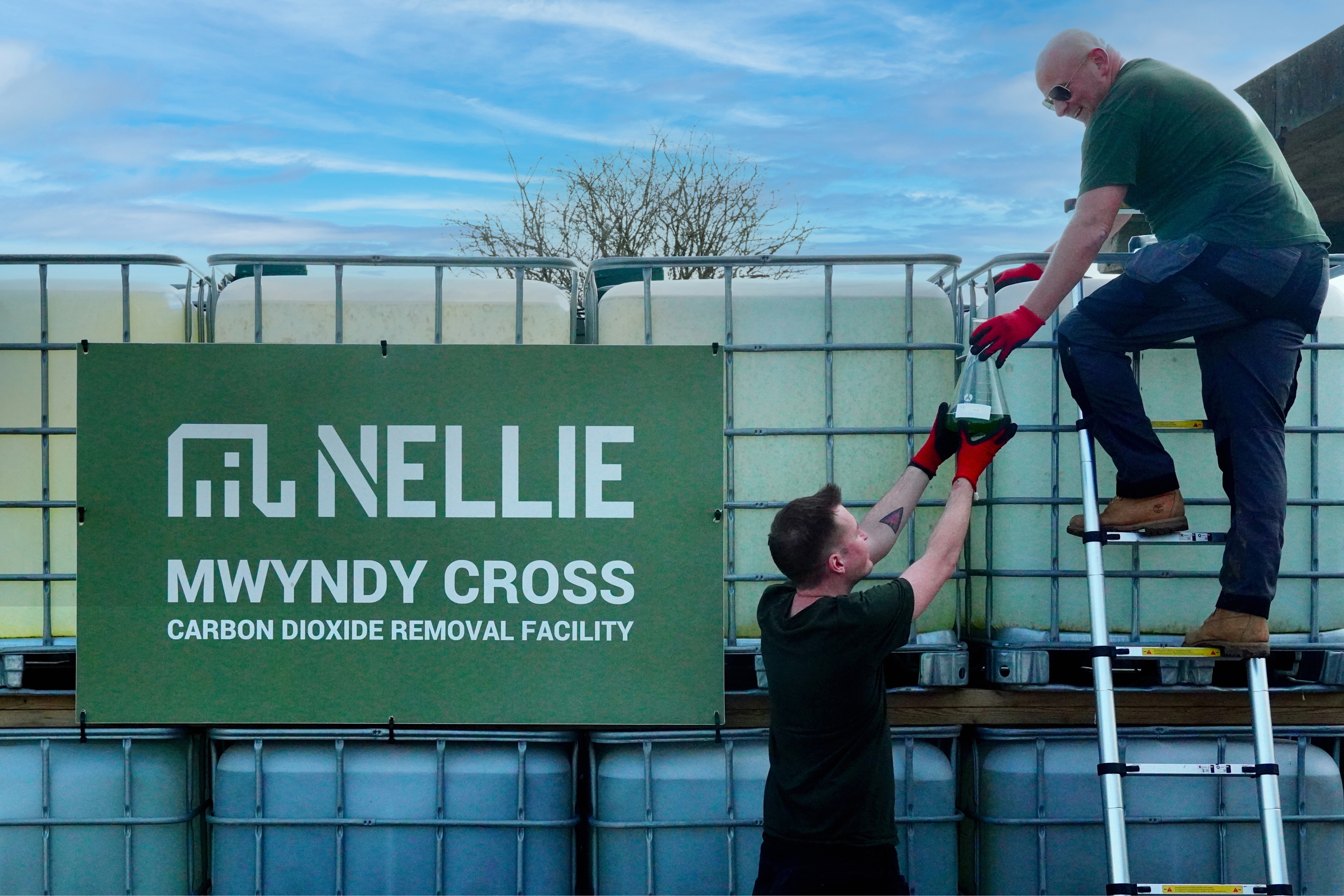
Image Credits: Nellie Technologies.
Investing in patents
When we asked Stephen about why patenting their technology was important to the team, he was clear about the commercial imperative:
Your patent provides you a base on which to build - protecting that base to give yourself time to build is important.
For Nellie Technologies, patents are essential for attracting investment. Stephen elaborated: "With carbon dioxide removal companies, we will not be profitable until several years down the line. So, when you're asking an investor for multiple millions to bring this idea to market, you need something to base that on. The IP is really the critical pillar there."
Fast and green
Nellie Technologies used the IPO's Green Channel service when applying for the patent, which Stephen found invaluable.
"Speed of response is critical, the turnaround was incredibly quick and allowed us to realise the benefits incredibly quickly."
"Working in carbon dioxide removal companies, there's an international network, and there's no other country that can get this across the line as quickly as it was done using the Green Channel in the UK."
Learn more about using the Green Channel to accelerate your patent processing here [link]: Patents: accelerated processing - GOV.UK
The Phycochar trade mark
The company owns a trade mark for the word "Phycochar" – a term that combines elements of their unique process. Stephen explained the importance of trade mark protection alongside their patent strategy.
The trade mark is not just about our name, but about the association with the type of carbon we're making. It's a different type of biochar with different characteristics that give it different end uses.
Advice for other clean tech innovators
For other clean tech businesses looking to protect their IP, Stephen emphasised the importance of professional guidance.
"Get proper advice, don't think you can do it yourself. We identified which innovation would offer the greatest protection to the business and had the greatest commercial potential before proceeding with our IP strategy."
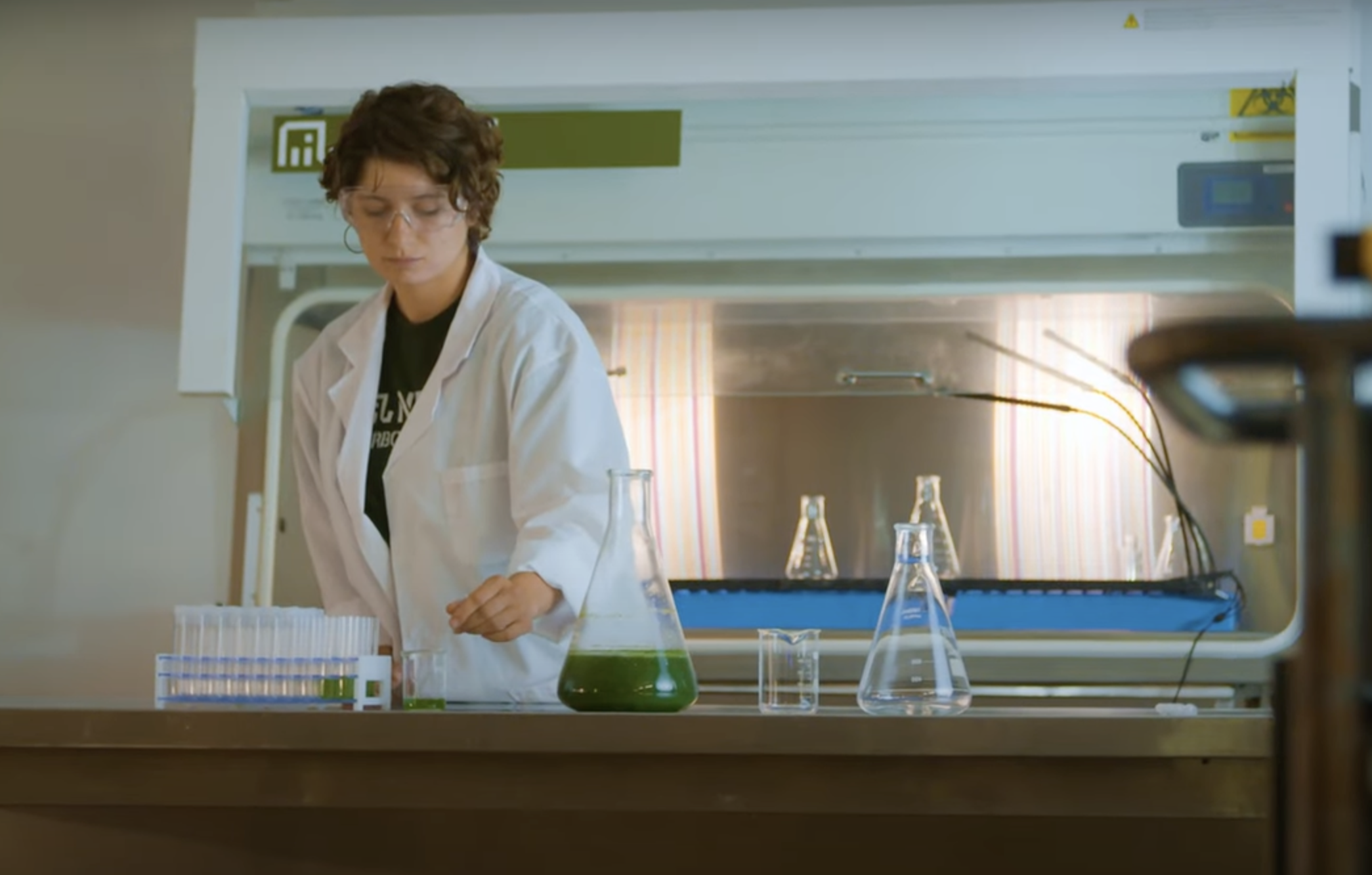
Image credit: Nellie Technologies.
Stephen highlighted the value of working with patent attorney firm Abel + Imray.
If you are looking for advice on making the first step in protecting your invention or business visit this link: Seeking intellectual property advice - GOV.UK
Auditing Nellie’s IP
Stephen was candid about how crucial government support has been for Nellie’s IP strategy. The IPO’s IP Audit and IP Access financial support programmes were particularly helpful in assisting the business to identify its IP assets and manage them effectively.
Without the funding supplied through the two programmes, we just simply wouldn't have been able to afford to progress this to the patent stage. Otherwise, the number of claims and the strength of the patent wouldn't be as strong. It would have been a placeholder, a token rather than something that's actually proven to be quite effective commercially.
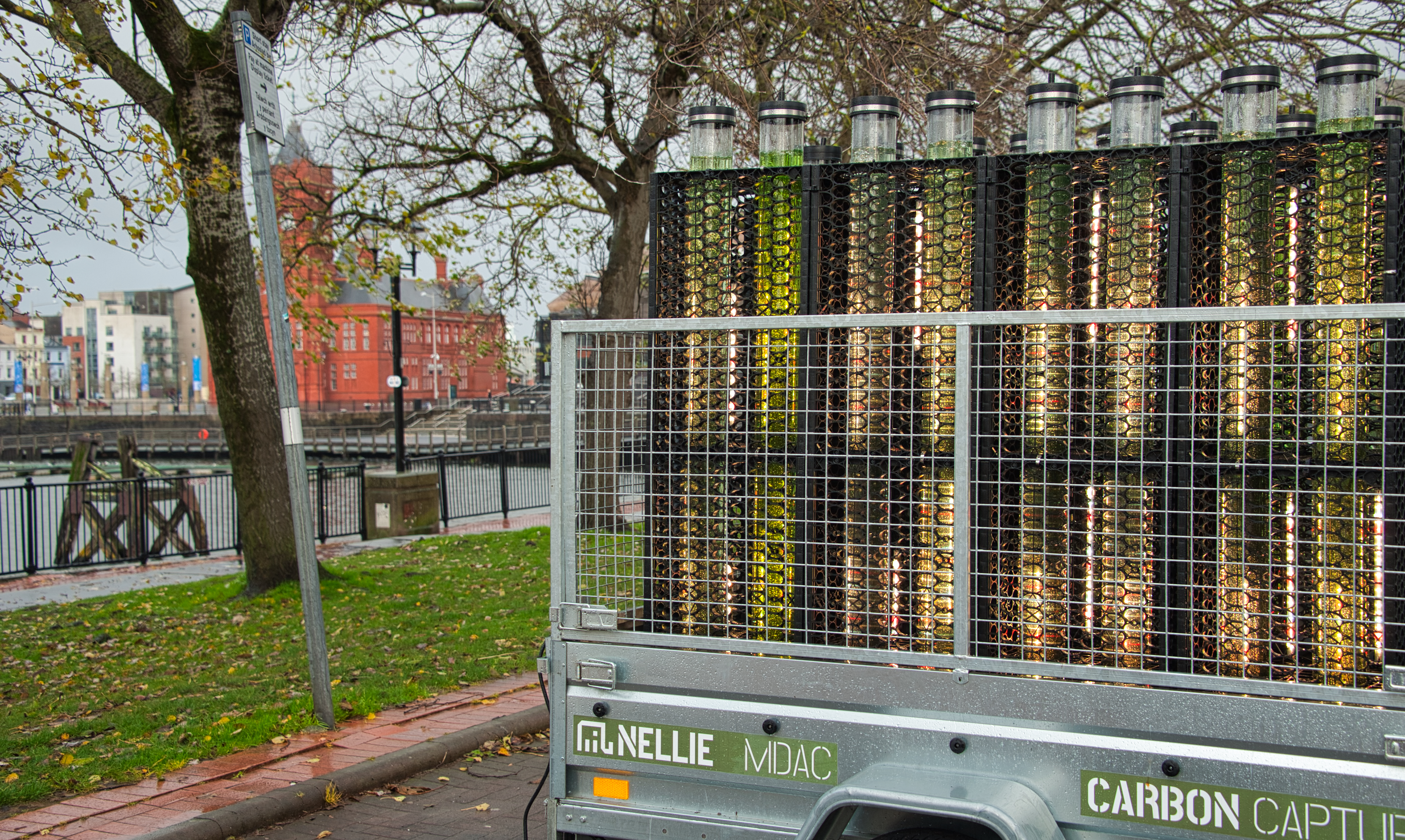
Image credit: Nellie Technologies.
The IP Audit helped Nellie Technologies prioritise which innovations to protect.
We arrived at three silver-to-gold pieces of innovation, through the exercise of identifying which one would offer the greatest protection to the business and the greatest commercial potential. That's how we decided which process we would progress to patent.
Want to explore more fascinating IP stories from innovative businesses like Nellie Technologies? Subscribe to our blog for regular insights into how businesses are protecting and leveraging their intellectual property to tackle some of our most pressing environmental challenges.
Recent Comments